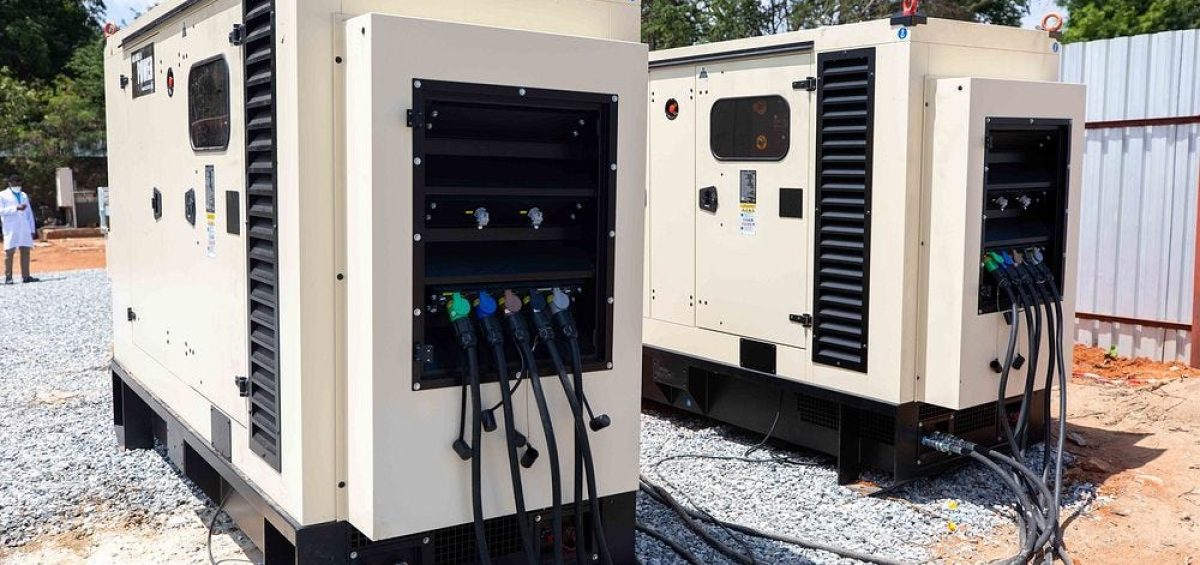Diesel generators have been a reliable backup energy source for businesses for decades. That said, with many renewable sources of power becoming available for the average business, like solar and wind power, is it still viable to buy a diesel generator? We’ll save you the trouble of guessing and tell you what we think. Yes, buying a diesel generator for your business is still a good investment. Keep reading to find out why.
The advantages of buying a diesel generators
Diesel generators aren’t the only generators used in businesses; many other generators use other natural gases. But, in our experience diesel generators have consistently proven themselves to be reliable and worth the investment. Here are some advantages of a diesel generator:
Easy to service and maintain
Firstly, being easy to maintain and service works in a diesel generator’s favour. Because diesel generators don’t use an electrical ignition system, they don’t have parts like spark plugs that need to be changed regularly. Generally, a diesel generator should be serviced every 400 hours of run time. The service would include changing oils and coolant, checking battery health, and inspecting the moving parts.
In addition to that, they’re typically made with strong, high quality materials that are designed to last under intense conditions. Thus, the generator lasts longer between services, saving you time and money.
More fuel efficient
Typically, diesel is a slower burning fuel source than other gases like petrol. Diesel is favoured for its stability, energy density, and the output ratio of energy to volume. In comparison to fuels like petrol, diesel burns at a 50% slower rate while outputting a similar amount of energy. This makes it a wise investment for business owners needing a sustainable backup power solution.
Exceptionally durable
We touched on this already, but diesel generators have a reputation for being virtually indestructible. Newer diesel generators are made in a smarter, more effective way that limits their need for maintenance as often. They’re also designed to be extremely resilient, allowing them to withstand harsh environments and conditions. Also, diesel generators usually also run cooler than other types of generators, which also adds to their being more durable.
Versatile
Lastly, considering the point above, because diesel generators are made to withstand practically any situation, they’re an extremely versatile backup power solution. Nowadays, large ships, shopping malls, hospitals, and large factories rely on diesel generators for emergency power solutions or even for their main power source, demonstrating their value across industries.
The disadvantages of buying a diesel generator
You wouldn’t be able to weigh up whether diesel generators were a good investment or not if you didn’t have an idea of the disadvantages, too. So, here are some of the disadvantages that come with diesel generators:
They’re expensive
Any backup power solution, like solar or wind power is going to cost you a significant amount of money upfront. With diesel generators, depending on the size, you are going to be spending a few thousand dollars on buying one. Some diesel generators can reach up to the $100,000 mark even, it all depends on what you need. But, once you have the generator it’s yours.
You have to pay for regular fuel costs
In addition to the cost of buying the generator, you also need to factor in the cost of running it. While diesel is considered the more efficient fuel choice for a generator, it still has its own cost, which could be significant if you need to run the generator often.
You need a safe place to store fuel
Then there’s storing the fuel. For large generators, it’s generally wiser for businesses to buy diesel in bulk and store it in their own facilities so they have it ready when they need it. Business owners need to ensure that where they keep it is safe, with there being no risk of it combusting or others getting a hold of it.
They’re noisy and big
Lastly, diesel generators are huge and noisy! If you’re going to buy a diesel generator to run as a backup for your factory, chances are that it will likely need its own area when installed, including a cover to protect it from the elements. Likewise, because it’s loud, you’ll want to keep it away from populated areas like offices, residential homes, or anywhere else where it may pose an issue.
Get your diesel generator today.
Consider the benefits of having a generator vs the disadvantages and what the impact of not having one would do to your business if the power goes out. If the ends justify the means, then you can find deals on diesel generators at Renteca, one of Australia’s leading diesel generator suppliers.
Final Thoughts
In the long run, no other backup power solution is going to produce the same power output for the same price. Business owners buy diesel generators because they burn fuel slower and produce more electricity. However, they do have their downsides, like being more expensive upfront. But if the ends justify the means, then you’re making a good investment.




